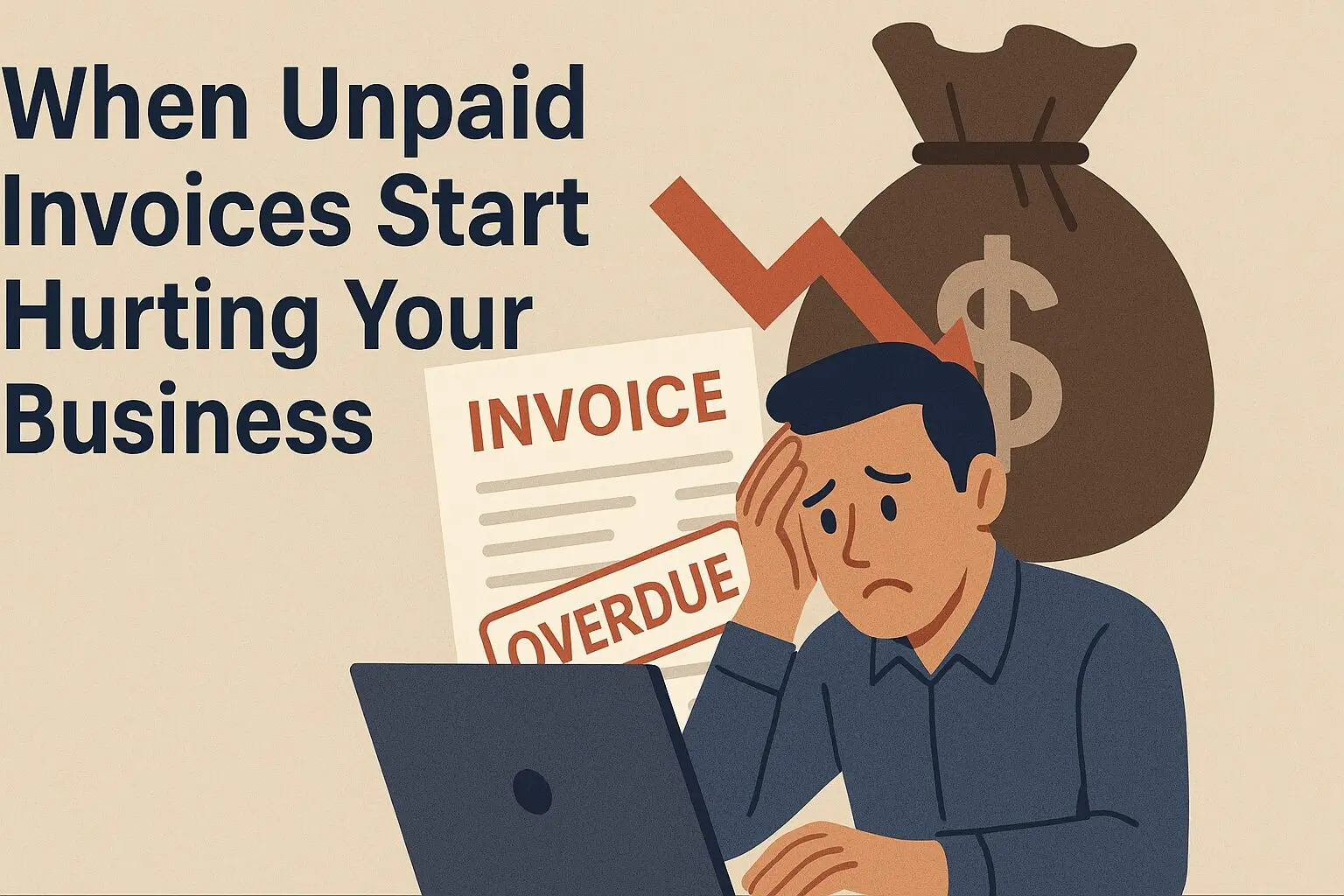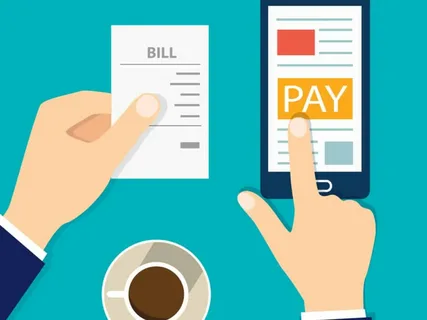When Unpaid Invoices Start Hurting Your Business
At first, it seems normal. A client asks for a little more time to pay. Maybe they promise to handle it next week. It doesn’t sound like a big deal. But then a few weeks pass, and nothing shows up. Before long, there are several unpaid invoices, and now it’s affecting how the business runs.
This happens more than people think, and it’s one of the fastest ways a small or growing business can start to struggle. Unpaid invoices aren’t just missing payments—they’re missed opportunities, extra stress, and pressure that builds up behind the scenes.
It Adds Up Fast—Even If It Doesn’t Seem Huge at First
One overdue payment might not seem like much. But when a few clients fall behind at the same time, or when one large invoice goes unpaid for too long, the impact can be serious. That money was probably meant to help cover costs—supplies, wages, rent, or future jobs. When it doesn’t come in, everything gets pushed back.
This kind of problem doesn’t always look obvious right away. A business might still be busy and taking new orders. But behind the scenes, the bank balance is shrinking, and pressure starts to grow. Paying bills on time becomes harder. Managing stock gets tricky. Even normal expenses become stressful.
Cash Flow Is the First to Suffer
Cash flow is what keeps a business running day to day. It’s not just about how much money is made overall—it’s about when that money actually arrives. If a business keeps selling but no one pays on time, there’s not enough cash available when it’s needed most.
This is where unpaid invoices start doing real damage. They delay everything. Projects slow down, suppliers chase their own payments, and some businesses even need to dip into savings or personal funds just to keep going.
That’s why some businesses look for outside help with debt recovery Perth sooner rather than later. Waiting too long to deal with overdue invoices only makes the cash flow gap worse. Getting the money owed quickly helps stop that chain reaction before it gets out of hand.
It Puts Pressure on the Whole Team
When a business is under financial stress, it doesn’t just affect the owner or the person handling accounts. The whole team feels it. It might show up as fewer hours for staff, tighter budgets for tools or materials, or delays in bonuses and pay increases.
This can lead to frustration, lower morale, and even team members looking for jobs elsewhere if things seem unstable for too long. What started as one or two late payments turns into a bigger problem—one that reaches into every part of the business.
That kind of pressure isn’t fair to the team, especially if they’re doing everything right. It just shows how important steady payments really are for the health of the whole company.
Clients Might Not Always Be Doing It on Purpose
Not every client who doesn’t pay on time is trying to avoid it. Sometimes people forget. Other times they’re dealing with cash flow problems of their own. But no matter the reason, unpaid invoices can’t be ignored.
Chasing them down takes time and energy, and it can feel awkward. But letting it slide usually leads to more problems later. Some businesses try calling or emailing over and over. Others might try giving discounts or extensions just to get paid. But even then, there’s no guarantee the money will come through.
That’s why some businesses prefer to hand it over to professionals who deal with this every day. It takes the pressure off and lets the business focus on what it does best, rather than playing phone tag with clients who keep stalling.
What Starts as One Delay Can Lead to Bigger Risks
If a business can’t collect what it’s owed, it risks falling behind on its own payments. That can lead to late fees, strained supplier relationships, and even legal trouble. Worse, it might stop the business from growing. Without the money that was expected, there’s no budget left for marketing, hiring, or upgrading equipment.
Some businesses avoid chasing debts because they’re afraid of ruining relationships with clients. But being clear, professional, and firm about payments is part of running any successful business. It’s not about being rude or aggressive—it’s about setting boundaries and keeping the business safe.
Acting Early Is Always Easier Than Cleaning Up Later
Waiting too long makes unpaid invoices harder to recover. The longer a payment is overdue, the less likely it is to be collected. Clients might move, shut down, or simply stop responding. That’s why the smartest businesses don’t wait months before acting—they track payments regularly and take action quickly when something’s late.
Having a clear system in place for payment reminders, follow-ups, and due dates makes this easier. And when that doesn’t work, bringing in help from experts who know how to recover debt the right way is often the best next step.
It’s not about punishment—it’s about protecting the business and making sure the hard work actually gets paid for.
Building a Stronger System for the Future
Recovering unpaid invoices is one part of the puzzle. The other part is setting up systems that stop the problem from happening again. This might mean adjusting payment terms, asking for deposits up front, or using better invoicing software. It could also mean setting clearer expectations with new clients before any work starts.
When businesses take control of their invoicing and collection process, they feel more confident. It’s easier to plan, easier to grow, and easier to trust that the money earned will actually come in on time.
Takeaway
Unpaid invoices don’t just hurt the numbers—they affect everything, from cash flow and team morale to growth and long-term stability. Acting early, staying organized, and knowing when to ask for help can make a big difference. A strong business isn’t just about doing great work—it’s also about making sure that work gets paid for, every single time.







